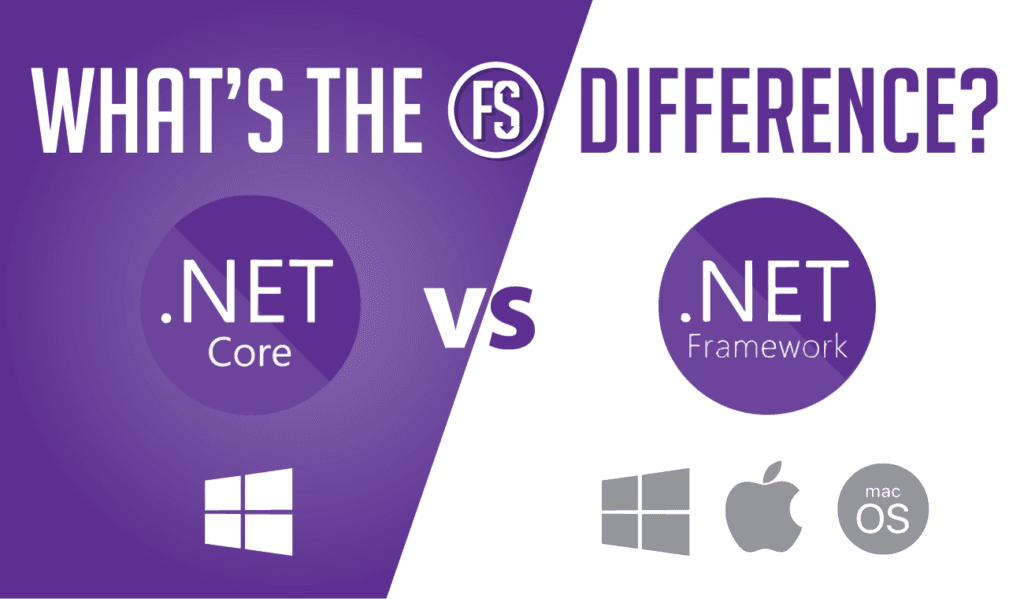Choosing the right framework is crucial for modern application development. This guide explains the difference between .NET Core and.NET Framework, helping you decide which suits your needs better.
What Is a.NET Framework?
The.NET Framework is a development platform created by Microsoft in 2002. It provides an environment for building and running applications for Windows-based systems. From desktop software to web applications, it supports a wide range of use cases.
Key Features of the.NET Framework
- Windows-Centric: Optimized for applications running on Windows OS.
- Extensive Libraries: Comes with a broad library base for functionalities like data access and cryptography.
- Robust Development Tools: Works seamlessly with tools like Visual Studio.
What Is.NET Core?
It was introduced by Microsoft in 2016 and is an open-source and cross-platform framework. Unlike the.NET Framework, it supports Linux, macOS, and Windows, offering developers flexibility in building modern apps.
Key Features of.NET Core
- Cross-platform compatibility: run applications on Linux, Windows, and macOS.
- High Performance: focused on performance, scalability, and lightweight applications.
- Containerization Support: Suitable for microservices architecture.
Core Difference Between.NET Core and.NET Framework
Understanding their differences ensures you pick the right tool for your project.
| Feature | .NET Core | .NET Framework |
|---|---|---|
| Compatibility | Cross-platform | Windows-only |
| Deployment | Lightweight, self-contained | Requires the.NET Runtime |
| Open Source | Fully open-source | Partially open-source |
| Performance | Optimized for speed | Suited for legacy systems |
| Use Cases | Modern, cloud-based apps | Windows-centric applications |
When to Use the.NET Framework
The.NET Framework is best suited for the following scenarios:
- Applications with heavy dependencies on Windows APIs.
- Legacy systems requiring support for older.NET versions.
- Organizations relying exclusively on Windows infrastructure.
When to Use.NET Core
.NET Core shines in these situations:
- Projects requiring cross-platform compatibility.
- Cloud and microservices-based applications.
- High-performance solutions with reduced overhead.
Detailed Comparison of Features
Platform Compatibility
.NET Framework is tied to Windows, while.NET Core works on multiple platforms, offering greater flexibility. Developers using.NET Core can target Linux servers or build cross-platform desktop applications.
Performance and Scalability
.NET Core’s performance is one of its defining features. It outshines the.NET Framework in terms of speed and memory optimization, especially in resource-intensive or large-scale applications.
Containerization and DevOps
With Docker support,.NET Core makes deploying scalable microservices easier. .NET Framework, although reliable, lacks direct containerization capabilities.
Development and Deployment Differences
Both frameworks have unique workflows in terms of development and deployment.
- .NET Core Deployment:
Self-contained deployment is a game-changer. Applications built with.NET Core don’t depend on system-installed frameworks, reducing compatibility issues. - .NET Framework Deployment:
Relies on centralized runtime installations on a system, making it suitable for environments already running Windows applications.
Pros and Cons
Advantages of the.NET Framework
- Rich Windows ecosystem.
- Time-tested and ideal for older enterprise apps.
- Extensive third-party library support.
Disadvantages of the.NET Framework
- Restricted to Windows.
- Lacks the performance optimizations found in.NET Core.
Advantages of.NET Core
- High performance and low overhead.
- Cross-platform capability.
- Modular development with smaller footprints.
Disadvantages of.NET Core
- Relatively fewer libraries for legacy applications.
- Developers may need to adapt to modern workflows.
Use Cases That Highlight the Difference Between.NET Core and.NET Framework
- Enterprise Applications:
.NET Framework fits legacy enterprise solutions tied to Windows. - Modern Cloud-Based Apps:
Choose.NET Core for apps needing microservices or cloud-native development. - Gaming and cross-platform desktop applications:
Use.NET Core to target broader audiences across devices.
Also read: MongoDB Key Features: Top Capabilities You Must Know
How to Transition from.NET Framework to.NET Core
Migrating a project can be challenging but manageable. Follow these steps:
- Analyze Compatibility:
Assess libraries, dependencies, and code compatibilities. - Plan Incrementally:
Transition one module or service at a time to minimize downtime. - Adopt Modern DevOps Practices:
Leverage containerization tools like Docker to maximize.NET Core’s strengths.
Conclusion
The difference between .NET Core and.NET Framework goes beyond just compatibility. While.NET Framework thrives in legacy Windows environments, while the other one offers robust solutions for modern, cross-platform development. Evaluate your project requirements, future scalability, and infrastructure to make an informed decision. By understanding their distinct advantages, you ensure your application leverages the right tools for success.
FAQ
Can.NET Core run.NET Framework applications?
No, direct compatibility is unavailable, but you can rewrite and migrate the code.
Is the.NET Framework becoming obsolete?
Not immediately, but Microsoft focuses more on.NET Core and the unified.NET platform.
How does the unified.NET 5 or.NET 6 fit into the comparison?
The unified.NET combines the best features of.NET Core and.NET Framework for broader compatibility.
Why is.NET Core more suitable for microservices?
Its lightweight nature and support for containers like Docker make it ideal for scalable, independent services.
What’s the main difference between .NET Core and.NET Framework?
.NET Core is cross-platform and optimized for modern workloads, whereas.NET Framework is restricted to Windows.
Which is better for Windows-only applications?
.NET Framework remains the top choice for Windows-centric software.



